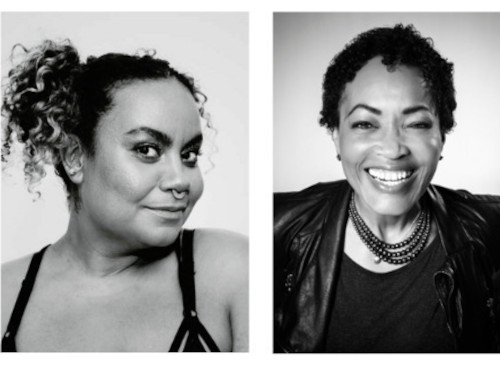Cassils and rafa esparza are both internationally renowned performance and visual artists who, in
2020, organized the large-scale socially engaged collaboration: In Plain Sight. In
Plain Sight
is a coalition of 80 artists, led by Cassils and esparza, united to create an artwork dedicated
to the abolition of immigrant detention and the United States culture of incarceration.
Cassils is a transgender artist who makes their own body the material and protagonist of their
performances. Cassils's art contemplates the history(s) of LGBTQI+ violence, representation,
struggle and survival. They have had recent solo exhibitions premier globally, including at the
Perth Institute for Contemporary Arts, Philadelphia Academy of Fine Arts, and MU Hybrid Art
House, Eindhoven, The Netherlands. Cassils is the recipient of many awards and fellowships, such
as a Fleck Residency from the Banff Center for the Arts, a Villa Bellagio Rockefeller Foundation
Fellowship, the inaugural ANTI Festival International Prize for Live Art, a California
Community. Foundation Grant, and MOTHA (Museum of Transgender Hirstory) award. Their work has
been featured in The New York Times, Artforum, Hyperallergic,
Wired, The Guardian, among others.
rafa esparza is a multidisciplinary artist whose work reveals his interests in history, personal
narratives, and kinship, his own relationship to colonization and the disrupted genealogies that
it produces. Using live performance as his main form of inquiry, esparza employs
site-specificity, materiality, memory, and what he calls (non)documentation as primary tools to
investigate and expose ideologies, power structures, and binary forms of identity that establish
narratives, history, and social environments. esparza is the recipient of many prestigious
awards, including the Rema Hort Mann Foundation Emerging Artist Grant, and Art Matters
Foundation grant, among others. In addition to multiple solo and group exhibitions, esparza has
performed at art institutions including the Institute of Contemporary Art, Los Angeles; Museum
of Contemporary Art, Los Angeles; the Whitney Museum of American Art, New York; and Hammer
Museum, Los Angeles. esparza's work is in the collections of the Guggenheim Museum, New York;
Hammer Museum, Los Angeles; Los Angeles County Museum of Art, CA; Whitney Museum of American
Art, New York, and others.




















